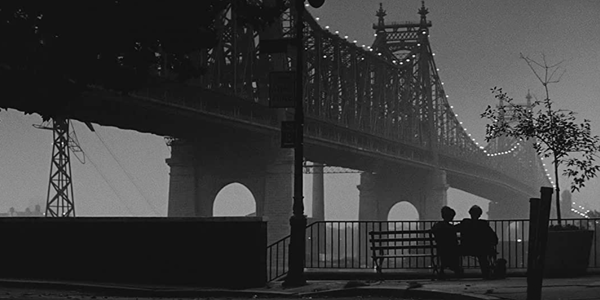
review | Mank
Yet another misguided—and poorly made—attempt to steal the credit for Citizen Kane from Orson Welles
by Michael Gaughn
March 27, 2021
For proof that it was a really bad idea to have the Oscars in the middle of a pandemic, you don’t need to look any further than David Fincher’s Mank. It’s had a ton of nominations heaped upon it and it’s the kind of film that stands a decent chance of walking away with some major awards. But it’s also an astonishingly bad movie, and in a legitimate year—like say 2019—it wouldn’t have been allowed to even stick its head in the Academy’s door.
I’m going to offer up my rationale for the above conclusions not because I want to let this thing reside in my brain for a single second longer than necessary but since it’s being puffed up as a really big deal, an important film, it would be irresponsible to shirk making the case against it.
First off, the story it tries to tell is incredibly old news. The myth that Herman Mankiewicz, not Orson Welles, is responsible for the greatness of Citizen Kane has been Hollywood folklore from the time of Kane’s creation. The tiresome Pauline Kael later latched onto it and made it the subject of her notorious Raising Kane. HBO’s unforgivable RKO 281 (1999) tread the same ground. It’s an argument that’s so easily picked apart I won’t even bother going there but comes down to being yet one more instance of the American terror of the outsider. Mank breaks no new ground here.
The film’s deepest flaw is one common to all of Fincher’s work—he’s just an overgrown kid who approaches everything he does like a giggly teenager who’s adopted a completely unearned cynicism to mask his fundamental immaturity. That leads him to take an incredibly complex and potentially rich tale and reduce it to the overstylized and remedial presentation of a comic book. The film is full of superficial busyness. All of the actors speak in exposition. All plausibility is optional and only grudgingly deployed. There is no nuance.
A fundamental example: Fincher is so obsessed with pulling off clever shots and editing patterns, and is so fundamentally limited as an actor’s director, that he lacks the interest, ability, or trust to just let people sit in the same space and organically interact. To resonate at all, this needed to be a tale of very real, very vulnerable people striving in some very heightened worlds. It instead feels like a bunch of indifferently-drawn stick figures meant to serve some storyboard hopelessly stuck in Fincher’s head.
Also, for the movie to have any power, it needed to stay true to who these people were and what these institutions were within the world of 1930s California and Hollywood. But Fincher, for all his faux cynicism, is really just a big lapdog of a director so he can’t resist the temptation to draw contemporary parallels throughout and give his characters contemporary attitudes. Remolding Welles as a hipster is faintly amusing but also a little too pat, like everything else here.
I was more impressed by Gary Oldman than I expected to be. I’ve always felt he was an “actor,” not an actor, and have been suspicious of his work ever since he was overpraised for his Sid Vicious impression in Sid and Nancy (1986). He’s almost engaging here, I suspect, because everything else in the film is so barely and poorly formed that even a yeoman-like turn seems intriguing.
It’s so easy to pick apart the movie’s ill-conceived and silly visual plan that I’ll leave that to others. The one thing I will point out is that the black & white cinematography is so contrasty, with the whites pumped up wretchedly high, that most of the images are painful to look at. Add to that a lot of fundamentally ill-conceived CGI work and you’ve got the visual equivalent of sandpaper.
There’s really nothing to be said about the Trent Reznor/Atticus Ross score except that it’s so predictable it’s like it’s not even there. But I was surprised by how badly this film is mixed. Since the dialogue was frequently unintelligible, I watched Mank a second time listening on headphones just to make out most of the lines.
If you like movies that are full of a sense of their own cleverness and that tell you exactly what to think and feel—and I realize there’s a substantial audience for that—then by all means wallow in Mank. But it’s hard not to watch something like this and continually sense how much more the movies can do, how much more they have done, and see it as a deeply troubling sign that this kind of simplistic twaddle is somehow seen as important. Citizen Kane brought an unprecedented depth to the movies; Mank is a celebration of the kind of bright, shiny surfaces Welles’ film was meant to pierce.
Michael Gaughn—The Absolute Sound, The Perfect Vision, Wideband, Stereo Review, Sound & Vision, The Rayva Roundtable, marketing, product design, some theater designs, a couple TV shows, some commercials, and now this.
PICTURE | The black & white cinematography is so contrasty, with the whites pumped up wretchedly high, that most of the images are painful to look at
SOUND | This film is so badly mixed that the dialogue is frequently unintelligible. The Trent Reznor/Atticus Ross score is so predictable it’s like it’s not even there.
© 2025 Cineluxe LLC





